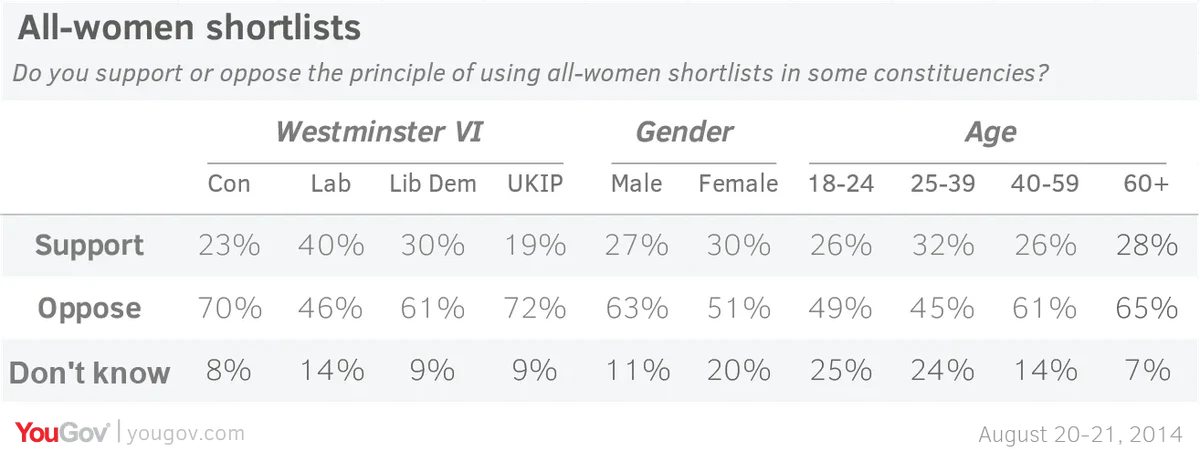British people across the social and political spectrum reject the use of all-women shortlists
Controversies surrounding the use of all-women shortlists have simmered for much of the summer, mostly involving the Labour Party, the only party to enforce them. All-women shortlists mean only women can stand for a political party’s candidacy in particular constituencies, with the aim of increasing the proportion of female MPs representing that party in Parliament. Advocates have argued that the practice is an effective way to redress age-old gender imbalances amongst MPs, but opponents have called them unnecessary and unfair.
A new YouGov poll for the Times Red Box finds the majority (56%) of the public oppose the principle of using of all-women shortlists. Half as many (28%) support all-women shortlists. 16% don’t know.
Strikingly, opposition to the use of all-women shortlists extends across all social and political groups in the poll.

63% of men oppose them, as do 51% of women. The same goes for the majority of Conservative, Lib Dem and UKIP voters and 46% of Labour voters. 40% of Labour voters do support the use of all-women shortlists, making them the most supportive group.
Members of each age group in the poll also tend to reject the idea, with opposition strongest amongst over 60s (65% support to 28% oppose) and weakest amongst 25-39 year olds (45% to 32%).
Opposition is at least as decisive in all of the regions in Britain, and amongst the different social grades.
As it stands, there is no doubt that Parliament is disproportionately male. Only 147 of the 650 MPs in the Commons are women, or 23% of the total.
PA Image






